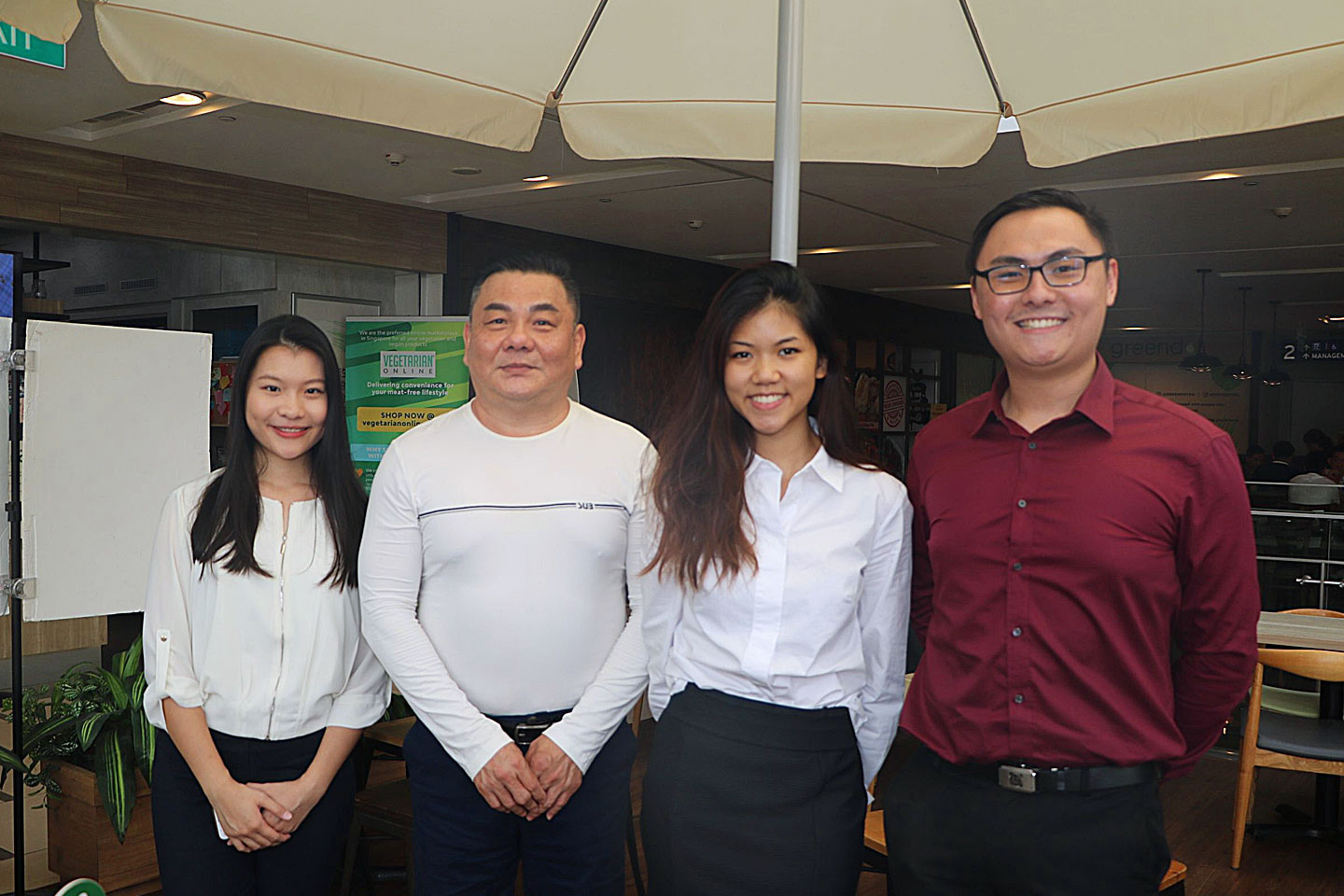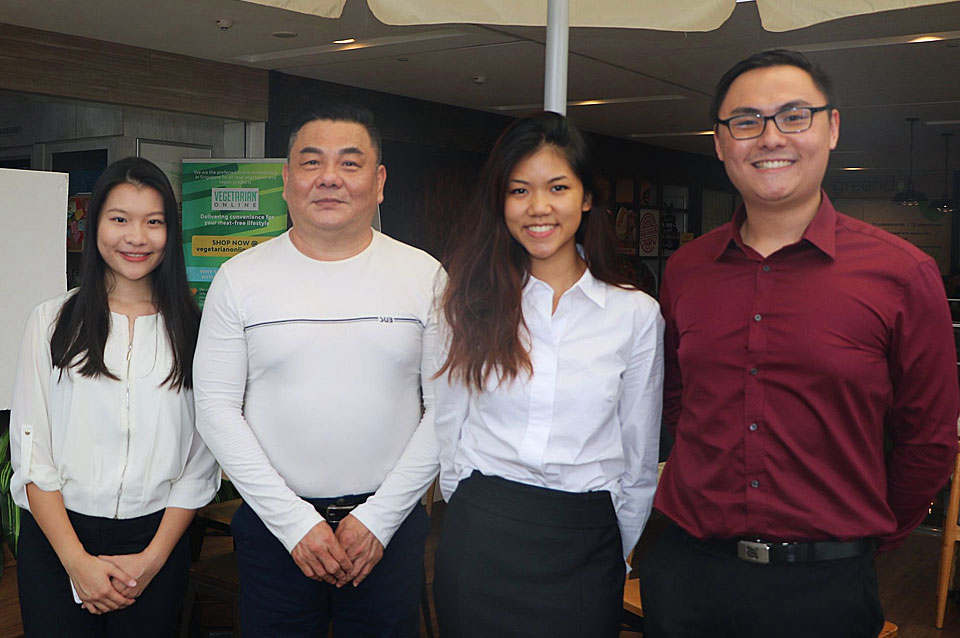Having graduated in 1990 with a BBA Honours degree, Mr Benjamin Yeo has worked at numerous reputable financial institutions such as GIC and investment banks (UBS, BoS). At Barclays Plc, he was the Chief Investment Officer overseeing the investment function across the different asset classes for private wealth clients. Besides being a professional in global investment research and management, Mr Yeo also enjoys mentoring and has been active in conducting workshops and training on investing at universities and corporate institutions.

Alumni Spotlight Stories: Benjamin Yeo

Q: Could you tell us about yourself and what your role is as a global equity researcher?
As a Chief Investment Officer at Barclays Plc, I was responsible for the investment advisory function of the wealth management unit; the role essentially entailed macroeconomic assessment and the formulation of investment strategies across the different asset classes. I also managed a team of investment professionals who were instrumental in contributing to the house view – basically, the recommended asset allocation strategies alongside the actionable asset allocation mixes across equity, bonds, real estate, alternative investments, venture capital and cash.
In addition to the fundamental research function, the investment advisory role necessitates both internal and external marketing. Thus, communicating to both internal (relationship managers) and external (bank’s clients and media) clients involves regular client meetings, periodic investment seminars and frequent media interviews on a gamut of investment views – which is an important aspect of branding for the bank.
Q: Did you have any work experience before looking for an employment? What were the skills developed that you were most appreciative of and valued most?
During my graduating year, I had an opportunity to do an internship at HP – in the customer service department dealing directly with clients in terms of equipment repair. I took the various tasks assigned to me seriously which resulted in improving service efficacies and a successful project outcome; in the process, I also managed to pick up some very useful concepts across the financial, technical and engineering fields. In addition to the required technical skills, I learnt very quickly that soft skills – communication and interpersonal skills – matter tellingly in project management.
Always adopt an ever teachable attitude
In view of my good working attitude, teachable personality and a willingness to venture beyond the comfort zone, the company offered me a position in the finance department; although, I did not take up the offer, the short stint left a lasting impression on me in terms of always taking the extra mile in one’s endeavours. Invariably, my advice to the numerous mentees that I had the opportunity to interact with is a simple one – always adopt an ever teachable attitude which I believe will take you far in your career and life; in fact, I firmly maintain that the moment one stops being teachable, the learning process halts and an insidious process of deterioration may be evident over time.
Q: What are some of the challenges you foresee in the industry?
Some generic challenges continue to persist in the investment management industry and especially in the wealth management space. They include the ever declining commissions revenue, the labour-intensive nature of investment management which translates to high cost pressures, and the ability to grow fee-based businesses, especially those of an annuity nature. Thus, wealth managers – especially private banks – have launched advisory programs involving robo-advisors in an effort to control the ever rising cost-income ratios. However, the jury is yet to be out regarding the feasibility of such endeavours involving artificial intelligence, big data and machine learning.
In addition, Asian private banks face an additional challenge, that of converting advisory clients into clients of discretionary mandates (fee-based businesses). Unlike high net-worth individuals in the other regions – especially clients in Europe and the Americas – who deals with generational wealth and are less thus involved on a day-to-day basis, Asia’s new rich tend to be more trading-oriented, enjoys the adrenaline pump alongside the market gyrations and thus may be less willing to park their wealth in discretionary portfolio mandates.
Q: Is there a ‘right’ time to make a corporate switch?
There is no such thing as a right time to make a corporate switch; it all depends on the opportunities at hand, the timing and the operating environment, and the management of uncontrollable factors. Suffice to add that if there is a right time, it has to be a situation where you have control over the decision and not one where you are forced into a helpless situation. Thus, one has to be wary of a career stagnation – broadly defined a point in your career/job where you have stopped learning or growing. It signals that you need to move on to another company or take on another role within the company so as to stay constantly challenged. Realistically speaking, every organisation has its pros and cons – what’s important is the fit between oneself and the job/organization. More succinctly, to add value to your career and the organisation, it is imperative that you are growing with and in the company you are working for. The moment you are not, it may be time to consider the next move.
It is imperative that you are growing with and in the company you are working for
Q: What are some things you have enjoyed over the course of your career and what are some valuable takeaways you would like to share?
As part of the management team, I do a lot of mentoring – especially in the area of training and development – as I believe in the value it has for new entrants to the industry. It is also something I enjoy doing and have been doing for many years (under NUS, NTU, SMU etc). In particular, I have conducted numerous courses on investing for retirement, how to identify the right stocks, value & cyclical investing and the asset valuation process. I think these are some of the important and practical skills one can start to learn early in life. Based on my interactions with Singaporeans, I realise that most people don’t invest enough and may not even have a retirement plan in place.
Thus, I started investing in my second year of employment. At the early stage of my career, it entailed more savings which meant deliberate cuts in non-essential consumption – what I call making short term sacrifices for longer term benefits. For example, while most of my peers were taking out loans to buy cars in their 3rd or 4th year of their career, I held off my auto purchase until my 10th year. By then, I was not that financially indebted and at the same time, I also had a retirement investing program fully in place – and being able to do it earlier makes a huge difference as it allows your capital to grow over time (capital appreciation + dividends) based on the concept of compounding returns.
Q: Do you have any last pieces of advice to leave our readers?
One all-encompassing piece of advice I would give is that in whatever you do and the decisions you make for your career, always bear in mind your ultimate objective that you want to be financially independent as early as possible so that you can do the things you like. Life, after all, is not meant to be spent being enslaved to your job; it is about living happily, but unfortunately in our world today, that boils down to dollars and cents, and having enough of it.
To leave you with some practical points: Firstly, pursue a career, especially in an area you like – the odds of success will naturally be higher if it is in an area you are passionate about and also enjoy doing. Secondly, as soon as you have a disposable income, start investing early – the early dive into the world of investing enables you to learn and accumulate investing knowledge and experience quickly. Last but not least, build and work on a retirement plan – you will need to constantly make adjustments along the way. When you actually retire is secondary – having made a provision for it via a retirement investment plan gives you the needed flexibility (increased layoffs and longer life span) in this day and age.
The Alumni Spotlight Stories is a weekly series that explores a Bizad alumni’s journey from school to the working world. The story was first published in “Alumni Spotlight Stories: From Student Life to the Peak of your Career” compiled by the NUS Business School Alumni (NUSBSA).


